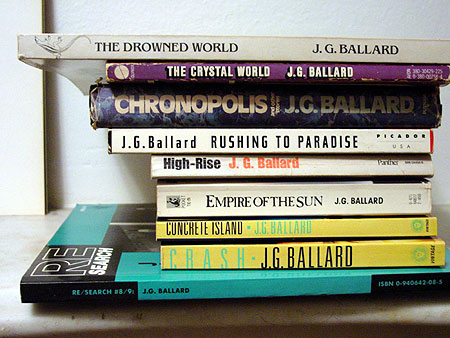Clear, detailed, sobering chart from New Scientist shows how many years' supply is left of various minerals (zinc, copper, germanium, etc) if:
--the world consumes these materials at the current rate and
--if the world consumes them at half the current US consumption rate.
Also considered is how much each metal is currently recycled.
It's fair to say several will be mined out in our lifetimes. Any science fiction writer worth his or her sodium chloride can imagine that our future economy will be based on the barter value of various used-up metals, and the rise of feudal systems based not on land but hoarded recyclables in the hands of technologically endowed elites.

